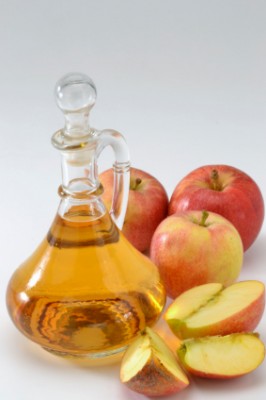If you are a homesteader or someone who believes in preparedness, you likely already include first-aid supplies such as alcohol, Band-Aids and antibacterial ointment along with your food storage. However, have you thought about storing foods that can be used for medicinal purposes as well as in recipes?
There are plenty of foods that can be used to treat ailments because of their antibacterial, antiviral, antifungal and anti-inflammatory properties.
Here are four foods to get you started:
1. Honey
If you’re already storing honey as a sweetener, you’ll be glad to know that you can also use it for medicinal purposes. Honey has been around for centuries. Its main use in ancient Egypt was to treat wounds. The acidic pH level of honey is what gives it a great antibacterial property.
Honey can be used topically to treat wounds, burns and infections. It can also be used internally to treat allergies, coughs, and colds.
New “Survival Herb Bank” Gives You Access to God’s Amazing Medicine Chest
Keep in mind here that local, natural honey will have the best effect. Most of the kind bought at the supermarket is heated to maintain its liquid form, so its healing properties are diminished.
2. Apple Cider Vinegar
This vinegar dates back to Hippocrates, who used to prescribe it to treat many illnesses. Apple cider vinegar comes from fermenting the liquid squeezed out of apples with bacteria and yeast until it turns to alcohol.
 Today it’s commonly used in salads, sauces, marinades and preservatives, but it can also be used for medicinal purposes. Apple cider vinegar has antibacterial, antiseptic, antiviral and antifungal qualities. Some ailments include sore throat, sinus infections, rashes, digestion and stomach ulcers.
Today it’s commonly used in salads, sauces, marinades and preservatives, but it can also be used for medicinal purposes. Apple cider vinegar has antibacterial, antiseptic, antiviral and antifungal qualities. Some ailments include sore throat, sinus infections, rashes, digestion and stomach ulcers.
As with honey, don’t get just any apple cider vinegar. Look for the natural cobweb-like sediment floating on the bottom of the bottle. That’s the one that is raw, unfiltered, unpasteurized and organic. When storing vinegar, keep it in a cool, dark place and make sure the lid is tightly closed when not in use. The color or flavor may change but it will still be safe to use if you store it properly. A cloudy appearance is nothing to be concerned about.
(Learn how to make vinegar the easy way.)
3. Garlic
Garlic is an antibacterial, antiviral, antioxidant and anti-inflammatory food. Because of these properties, it can kill bacteria, fungi and intestinal parasites, and it can also boost the immune system. Garlic was used in World War II to disinfect and heal wounds.
New Survival Energy Product Makes Every Window A Powerful Solar Collector
When using garlic to treat a wound, first mix it with water so it doesn’t irritate the skin. You will also need to take some precautions if you take blood-thinning medication. Garlic also can increase bleeding during childbirth or surgery. Talk to a doctor to make sure garlic won’t interfere with any other medications you’re taking.
To store garlic, you need to cure it first, but a better option is if to grow it year-round in your garden.
4. Cinnamon
This is a spice that has been around as long as honey. Because of its anti-inflammatory qualities, it has been used to help with muscle and stomach spasms, bloating, intestinal gas, vomiting, diarrhea and the common cold. Cinnamon also has antifungal, antibacterial and antiviral qualities.
The best form to buy cinnamon is in sticks, as the powdered kind may not be as potent. The sticks should be stored in a cool, dry, dark place. When stored in glass containers, they can last months. Powdered cinnamon needs to be used as early as possible because it loses its flavor quickly.
Storing cinnamon for long periods is challenging. Try keeping it in sealed containers in the fridge.
Be careful of eating cinnamon in large quantities. It can cause unwanted side effects, such as liver damage, if you consume too much of it.
When considering your food storage plan, having foods that will supply balanced nutrition is a good idea. If they can also serve as medicine, that is a great idea.
As with any food, keep in mind any allergies you may have. If you’re allergic or sensitive to a food when eaten, you may not have a good reaction if you apply it topically. It’s always good to test the food before an emergency arises.
What foods would you add to this list? Share your advice in the section below:
These 4 Foods Aren’t All That Your Should Stockpile. Read More Here.
 Off The Grid News Better Ideas For Off The Grid Living
Off The Grid News Better Ideas For Off The Grid Living





